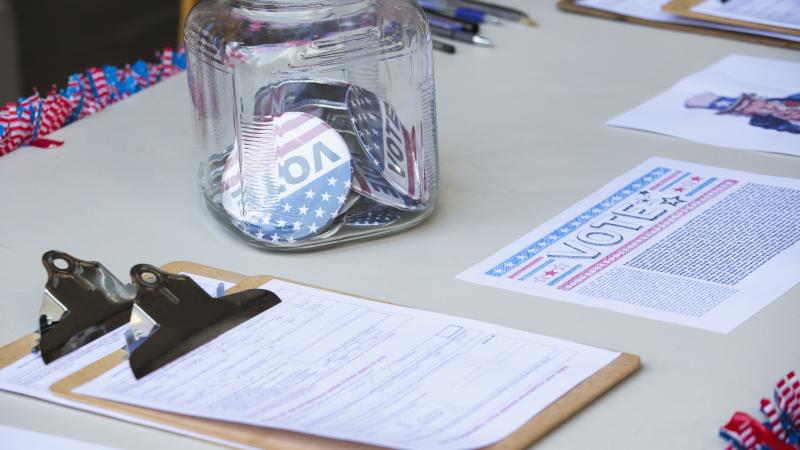Turnout in Virginia Democratic primary dropped about 11%
About 8% of Democratic voters turned out for the state primary, which is lower than 2017 when about 10% turned out
Voters in Virginia picked their candidate to represent the Democratic Party in the 2021 race for governor, but turnout dropped by about 11% compared to the 2017 primary.
In total, more than 488,100 people voted in the party’s five-candidate primary, compared to 542,858 in 2017’s two-candidate primary. This shows an 11% drop and more than 50,000 fewer votes cast in 2021.
About 8% of Democratic voters turned out for the primary, which is lower than 2017 when about 10% turned out to vote. However, despite the numbers being low compared to the previous election, they are still higher than average when compared to the other most recent gubernatorial primaries.
Out of the total votes cast, the Democratic nominee, businessman and former governor, Terry McAuliffe, secured a commanding victory. He took more than 300,000 total votes and more than 62% of the electorate. In 2017, then-candidate Gov. Ralph Northam got nearly the same number of votes, but in a tighter race.
Republicans did not hold a primary to compare the Democratic numbers to; rather, the party nominated businessman Glenn Youngkin through a convention process.
The Center Square reached out to the Democratic Party of Virginia for comment on the lower turnout numbers, but did not receive a response by the time of publication. Republicans and conservatives, however, said the lower turnout suggests an optimistic outlook for Youngkin and other Republicans in the upcoming election.
“Despite the longest early voting period ever, no photo identification requirements, and near-universal vote-by-mail, Democrats across the Commonwealth are fretting about low turnout,” Republican Party of Virginia Chairman Rich Anderson said in a statement. “It’s safe to say that Republicans are the most excited group in Virginia for Terry McAuliffe’s primary win.”
Tucker Davis, the executive director of the conservative group Virginia Rising, called McAuliffe’s performance underwhelming.
“Washington insider Terry McAuliffe walked into the Democrat primary, but he’s limping out after an underwhelming performance,” Davis said in a statement. "McAuliffe’s opponents and even Former Governor Doug Wilder have warned Democratic voters that his candidacy would zap the enthusiasm of their base heading into the General Election and that’s exactly what’s happened. Voter turnout was even lower than usual leaving Terry McAuliffe with an enthusiasm gap in his own party and an opportunity for Glenn Youngkin to woo voters who have seen enough of Terry McAuliffe.”
In a statement following his victory, McAuliffe said he is running for governor to create great paying jobs, reduce health care costs and build the best education system in the country.
“We launched this campaign six months ago on a simple idea: Virginia has big challenges ahead, and it's going to take big, bold ideas and experienced leadership to move us forward and lift everyone up,” McAuliffe added.
After the Democratic primary, Youngkin welcomed McAuliffe to the race and said he looked forward to presenting competing ideas on how to govern. The Republican nominee said communities have become less safe under Democratic leadership and voters believe they need a new kind of leader.
“I am looking forward and moving beyond the politics of the past to bring people together around our shared values and rebuilding Virginia into the best place in America to live, work, and raise a family,” Youngkin added. “Together we will reignite our economy, restore excellence in our schools, and reestablish our commitment to public safety.”
The general election will be Nov. 2.














